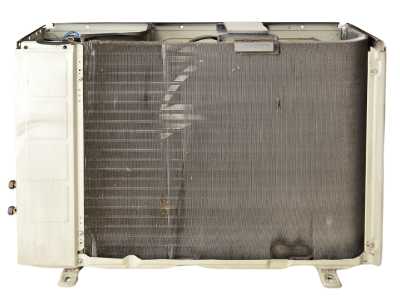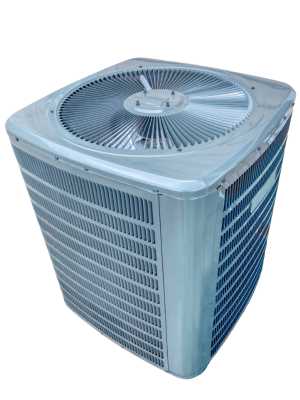Is your central heating and air system not working as well as it used to? Are you constantly calling for repairs or noticing a spike in your energy bills? It may be time to consider whether or not a central heating and air system replacement is needed.
Replacing your HVAC system is a significant investment, but it can also save you money in the long run. In this blog post, we’ll start with a few tips to know when it’s time to replace your central heating and air system. We'll continue on with some important factors to consider when you're choosing a new HVAC unit. Finally, we'll cover some of the benefits you can expect.

Top Things to Look for When it is Time for a HVAC Replacement System
Frequent Repairs
If you find yourself calling for HVAC repairs more than once a year, it may be a sign that your system is on its last leg. As your system ages, it becomes less efficient and more prone to breakdowns. While repairs may seem like a quick fix, they can add up over time and end up costing you more than a replacement.
Rising Energy Bills
Have you noticed a significant increase in your energy bills? This could be a sign that your central heating and air system is no longer functioning efficiently. Older systems have to work harder to maintain the desired temperature, resulting in higher energy consumption and costs.
Uneven Temperatures
Do you find that some rooms in your home are consistently colder or warmer than others? This could be a sign that your central heating and air system is struggling to distribute air evenly throughout your home. This can be caused by a variety of issues, including an aging system or ductwork that needs to be replaced.
Age of Your System
The average lifespan of a central heating and air system is 15-20 years. If your system is approaching or has exceeded this age range, it may be time to start considering a replacement. Even if your system is still functioning, it may not be as efficient as newer models and could be costing you more in energy bills.
Factors to Consider When Replacing Your Central Heating and Air System

Energy Efficiency
When replacing your central heating and air system, it’s important to consider the energy efficiency of the new system. Look for systems with a high SEER (Seasonal Energy Efficiency Ratio) rating, which indicates how efficiently the system uses energy. A higher SEER rating means lower energy bills and a more environmentally friendly system.
Size of Your Home
The size of your home plays a significant role in determining the size and type of central heating and air system you need. A system that is too small will struggle to keep your home at a comfortable temperature, while a system that is too large will cycle on and off frequently, resulting in higher energy bills. It’s important to have a professional HVAC technician assess your home and recommend the appropriate size and type of system for your needs. Engle Services uses the newest technology to ensure the proper sized unit is installed every time.
Type of System
There are several types of central heating and air systems to choose from, including split systems, packaged systems, and ductless mini-split systems. Each type has its own pros and cons, so it’s important to research and consult with a professional to determine which type is best for your home.
Cost
Replacing your central heating and air system is a significant investment, so it’s important to consider the cost of the system and installation. I know it may be tempting to choose the cheapest option, but it’s important to consider the long-term costs and benefits of a more expensive, energy-efficient HVAC system replacement. In some cases, a more expensive system may end up saving you money in the long run through lower energy bills and fewer repairs. When financing a new HVAC replacement unit, the payment is often offset by the energy savings. Call Engle Services for more details.
Benefits of Replacing Your Central Heating and Air System
Improved Energy Efficiency
One of the main benefits of replacing your central heating and air system is improved energy efficiency. Newer systems are designed to be more energy-efficient, resulting in lower energy bills and a more environmentally friendly home.
Increased Comfort
A new central heating and air system can also improve the overall comfort of your home. A properly sized HVAC system will also save on energy costs.
Fewer Repairs
Replacing your central heating and air system can also save you money in the long run by reducing the need for frequent repairs. With a new system, you can expect fewer breakdowns and a more reliable system.
Improved Air Quality
Older central heating and air systems can accumulate dust, dirt, and other allergens, which can negatively impact the air quality in your home. By replacing your system, you can improve the air quality and create a healthier living environment for you and your family.
Conclusion
Replacing your central heating and air system is a significant decision, but it can have many benefits in the long run. By paying attention to the signs that your system may need to be replaced and considering factors such as energy efficiency and cost, you can make an informed decision about when to replace your system. With a new, properly functioning system, you can enjoy a more comfortable and energy-efficient home.
Engle Services offers home central heating and cooling unit repair and installation in Sylacauga, Talladega, Birmingham, Shelby County (Hoover, Chelsea), Alabaster, Pell City, Dadeville, Wetumpka, Montgomery, Fort Walton Beach (Florida) and all their surrounding areas.
Ready to schedule with our team of HVAC Technicians, Electricians, and Plumbers?
Schedule an appointment online or give us a call at (855) GET-ENGLE
